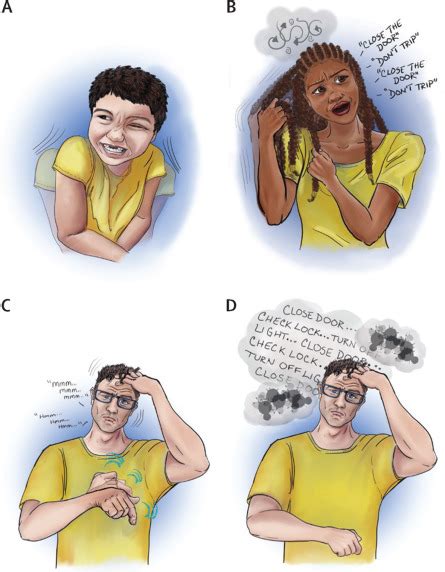Tourette syndrome (TS) is a neurodevelopmental disorder that is characterized by tics. Tics are involuntary, repetitive movements or sounds. They can be simple or complex, and they can range in severity from mild to severe. TS is a chronic condition, but it can be managed with medication and therapy.

The Diagnostic and Statistical Manual of Mental Disorders (DSM-5) defines TS as a neurodevelopmental disorder that is characterized by the presence of both motor and vocal tics. Motor tics are involuntary, repetitive movements of a muscle group. Vocal tics are involuntary, repetitive sounds. TS is diagnosed when a person has had both motor and vocal tics for at least a year.
The exact cause of TS is unknown, but it is thought to be caused by a combination of genetic and environmental factors. TS is often comorbid with other neurodevelopmental disorders, such as attention deficit hyperactivity disorder (ADHD) and obsessive-compulsive disorder (OCD).
TS can have a significant impact on a person’s life. Tics can be embarrassing and disruptive, and they can interfere with a person’s ability to function in social, academic, and occupational settings. TS can also lead to secondary problems, such as anxiety, depression, and low self-esteem.
The Americans with Disabilities Act (ADA) is a federal law that prohibits discrimination against people with disabilities. The ADA defines a disability as a physical or mental impairment that substantially limits one or more major life activities.
TS is considered a disability under the ADA. Tics can substantially limit a person’s ability to function in major life activities, such as working, learning, and socializing. People with TS are entitled to the same rights and protections under the ADA as people with other disabilities.
There are a number of accommodations that can be made to help people with TS manage their tics. These accommodations can include:
- Educational accommodations: These accommodations can include providing extra time for tests, allowing students to take tests in a quiet room, and providing preferential seating.
- Workplace accommodations: These accommodations can include providing a flexible work schedule, allowing employees to work from home, and providing access to adaptive technology.
- Social accommodations: These accommodations can include providing social skills training, helping people with TS find support groups, and advocating for their rights.
There is no cure for TS, but there are a number of treatments that can help to manage tics. These treatments include:
- Medication: Medications can be used to reduce the frequency and severity of tics.
- Therapy: Therapy can help people with TS to learn how to manage their tics and to cope with the challenges of living with TS.
- Support groups: Support groups can provide people with TS with a sense of community and support.
TS is a chronic condition, but it can be managed with medication and therapy. People with TS can live full and productive lives. They are entitled to the same rights and protections under the ADA as people with other disabilities.
- American Psychiatric Association. (2013). Diagnostic and statistical manual of mental disorders (5th ed.). Arlington, VA: American Psychiatric Association.
- Centers for Disease Control and Prevention. (2019). Tourette syndrome. Retrieved from https://www.cdc.gov/ncbddd/tourette/facts.html
- National Institute of Neurological Disorders and Stroke. (2019). Tourette syndrome information page. Retrieved from https://www.ninds.nih.gov/Disorders/All-Disorders/Tourette-Syndrome-Information-Page
